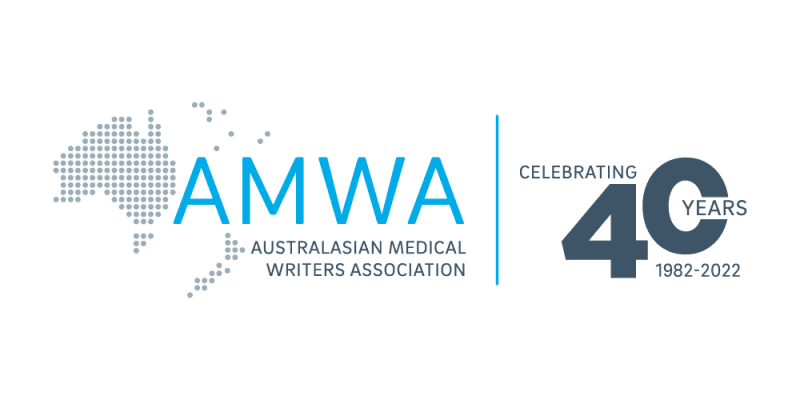Final Frontier: The Epic Challenge of Developing a COVID-19 Vaccine
By Eve Vickerson - AMWA Committee Member. 11 March, 2021

Shortly after the first shipment of Pfizer’s COVID-19 vaccine landed in the country, Australia’s health minister declared: ‘The eagle has landed.’ The space exploration comparisons don’t end there. The Russian vaccine, Sputnik V, shares its name with the first satellite to orbit Earth.
You can see why some people have likened the development of the COVID vaccine to the space race of the 1950s and 60s. After all, creating multiple vaccines for widespread use in the space of less than a year is boldly going where no humans have gone before. But, it does raise the question, how did we get here so quickly?
The short answer can be found in the first of AMWA’s Webinar Series, The COVID-19 Vaccine – Your Questions Answered. What follows is an overview of the highlights from this fascinating webinar.
Investing in our Future
During his presentation, Professor Jamie Triccas, Director of the Infection, Immunity and Inflammation Program at the University of Sydney, said that the rapid development of the COVID-19 vaccine is due to a convergence of new technology with enormous levels of funding.
‘The development of these vaccines is unparalleled and it’s really extraordinary,’ Prof Triccas said. ‘The investment was huge. For example, Novavax received $2 billion to develop their particular vaccine from the US Government.’
The speed of COVID-19 vaccine development increased by doing clinical development at the same time as large-scale manufacturing. With increased speed, came an increased risk.
‘There was a very big possibility that we would make literally millions of doses of a vaccine that didn’t work because the vaccine was being made before it was being tested,’ said Prof Triccas.
While risky, it also meant that ‘… once a vaccine was shown to be safe, effective and ready to use, we had a relatively large stockpile of vaccine that was ready for deployment.’ Given the terrible impacts of the pandemic, it was considered a risk worth taking for governments, vaccine manufacturers and pharmaceutical companies.
The Class of mRNA
When explaining how mRNA vaccines work, Prof Triccas clarified why this new class of vaccines had not been approved for use before.
‘This was a technology that had been around for a long period of time but had taken people many years to perfect. It wasn’t really anything to do with safety or that this was a technology that we couldn’t really apply. It was just the fact that we weren’t generating really good immune responses when these were being delivered.’
According to Prof Triccas, the solution has been to develop ways of injecting the RNA to ensure that it is recognised by the immune system to generate a response, as well as encapsulating this material in a way that it can be delivered into cells.
At this point in the webinar, there was a very helpful overview given on how the major COVID-19 vaccines work, according to their vaccine class. So if you don’t know your viral vector vaccines from your protein vaccines, take advantage of your AMWA membership now and watch the replay.
Updates and Challenges
There is good news emerging about the effectiveness of COVID-19 vaccines in the real world. Prof Triccas presented recent evidence based on observational studies showing results that he describes as “really impressive”. The article references are available in the webinar slides.
Despite these early positive results, challenges remain in COVID-19 vaccination, such as the emergence of new viral variants.
Prof Triccas said that what is being shown is ‘that if someone has been infected with the original SARS-CoV-2, or indeed have been vaccinated with the Pfizer, Moderna, Novavax or AstraZeneca vaccine; if you take the antibodies from those individuals, and you try to get those antibodies to bind to these viruses and neutralise their effects… they don’t work very well.’
In particular, they do not appear to work very well against the B.1.351 variant which was first detected in South Africa. Of the vaccines that have been tested against the B.1.351 variant, Prof Triccas said that their efficacy appears to be reduced but that they are protecting against severe infections.
While updated vaccines are currently being developed, there is another critical problem in COVID-19 vaccination that needs to be addressed. Prof Triccas concluded the webinar by highlighting the importance of achieving global health equity in the vaccine rollout.
New Horizons
Watching this webinar not only helps in understanding how COVID-19 vaccines were developed but also in appreciating how far we have come in forging new frontiers in vaccine development. You can’t help but feel in awe of the technological and scientific advancements that have been made.
A full replay of Prof Triccas’ presentation is available to AMWA members here. Keep the learning going and register now for the upcoming events in the webinar series.
 Eve
Vickerson
is a health
and medical writer
based in Brisbane, Australia. She specialises in creating clear, caring and credible content for health consumers and healthcare
providers.
Eve
Vickerson
is a health
and medical writer
based in Brisbane, Australia. She specialises in creating clear, caring and credible content for health consumers and healthcare
providers.
Combining a master’s degree in marketing with her past experience as the marketing manager at a major hospital research foundation, Eve applies health-literacy strategies to produce thoroughly researched, up-to-date, evidence-based content. She also volunteers her time on the AMWA Executive Committee. You can connect with her on LinkedIn and Twitter.
